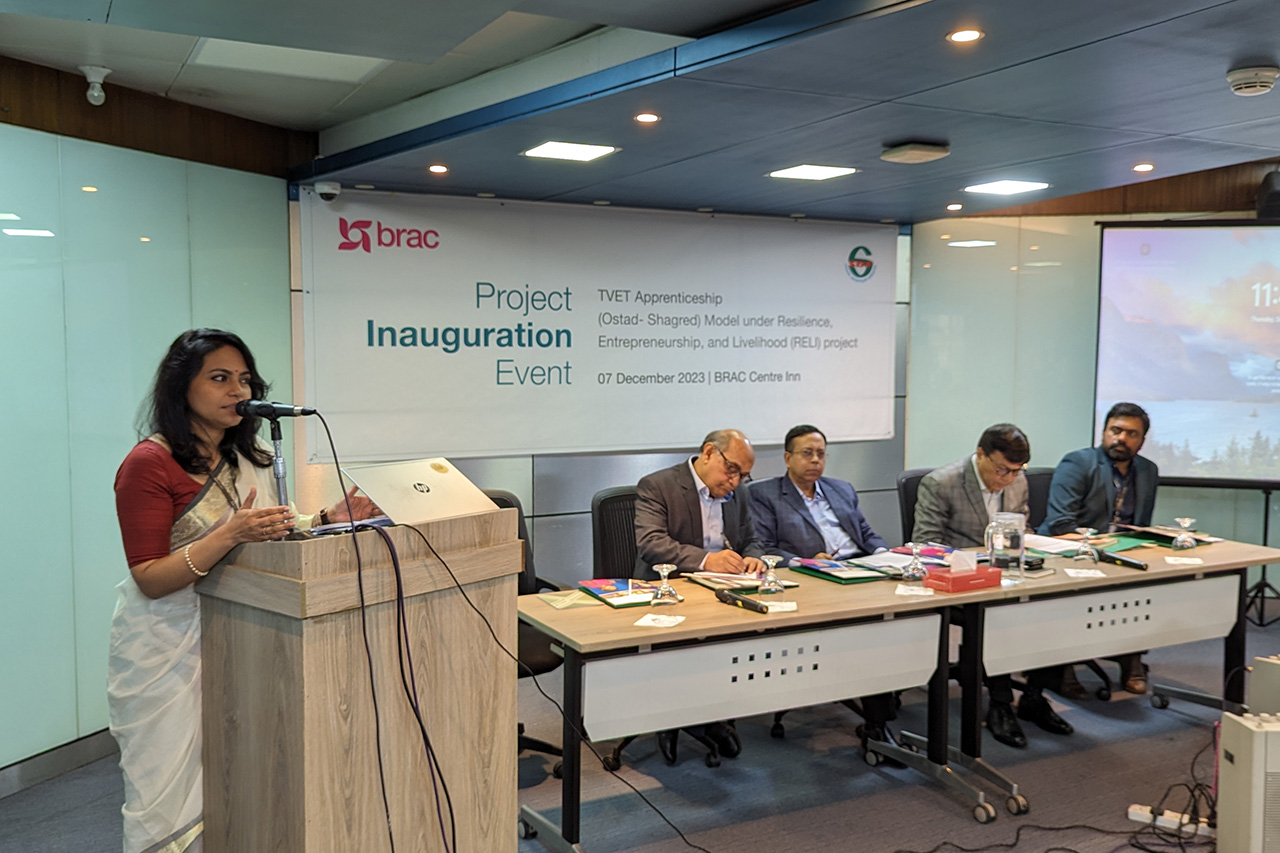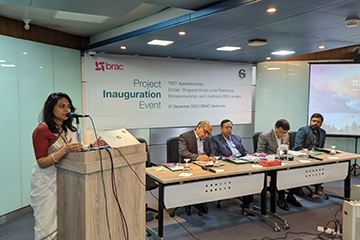
80% subsequently finding employment with 62% of trained girls avoiding early marriage.
BRAC has extended its successful non-formal apprenticeship model, Ustad-Sagred, to provide training and employment opportunities to 1,500 disadvantaged youth in rural areas. The 'Resilience, Entrepreneurship and Livelihood (RALI)' project by the Social Development Foundation (SDF) under the Ministry of Finance has endorsed the 'Ustad-Sagred' model and collaborates with BRAC to provide the training.
The introduction of BRAC's non-formal apprenticeship model, Ustad-Sagred, is aimed at fostering employment opportunities by enhancing the skill development of young men and women who have discontinued formal education. Since its inception in 2012, the 'Ustad-Sagared' model has effectively contributed to youth employment by elevating their skills through hands-on and practical training methodologies.
The official launch event, titled 'Technical and Vocational Education and Training' (TVET) apprenticeship or Ustad-Sagred Project, took place on Thursday, 7 December 2023, at the BRAC Centre in Mohakhali, in the capital. The event was jointly organised by BRAC and SDF and attended by high-officials, including SDF Chairperson Md. Abdus Samad and Managing Director Dr. Amitabh Sarker.
Tasmiah Tabassum Rahman, Associate Director of BRAC's Skill Development Programme and Dr. Amitabh Sarker delivered the opening speeches, emphasising the significance of practical training in boosting the employability of young individuals who have discontinued formal education. Rezaul Mazid, the project manager of BRAC’s Skills Development Programme (SDP), concluded the event, while Dr. Zafar Ahmed Khan, senior policy advisor of BRAC, also addressed the attendees, expressing optimism about the project's success and its potential for future expansion.
BRAC and SDF officials expressed their collective aspirations for the continued success of the Ustad-Sagred model and anticipate its expansion, significantly contributing to skill development and employment generation for the youth in Bangladesh.
The Ustad-Sagred model, initiated in 2012 under the 'Skill Training for Advancing Resources (STAR)' programme, focuses on imparting hands-on training to individuals aged 14 to 22 who have left the formal education system. The programme has been notably effective compared to conventional training systems, leading to increased employment opportunities for the youth.
Under the STAR programme, currently active in 52 districts across the country, over 120,000 individuals have received training, with a remarkable 80% subsequently finding employment. Notably, 60% of the trainees are women, and 10% are individuals with physical challenges. The programme has also played a pivotal role in preventing child marriages, with 62% of trained girls avoiding early marriage.
Moreover, the Ustad-Sagred model has successfully trained over 45,000 Ustads (instructors) who actively contribute to various small businesses. This symbiotic relationship between instructors and trainees has fostered learning in practical skills, workplace beautification, and gender awareness, turning the Ustads into proficient trainers.









